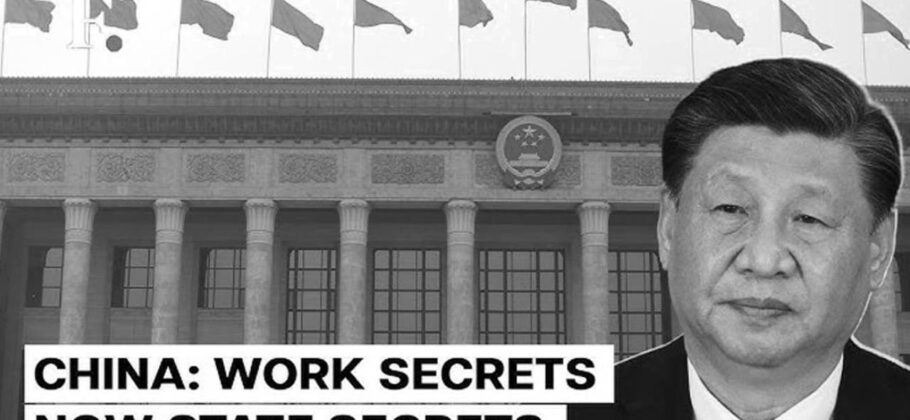A new development from China has stirred significant unease among major global tech firms. A legislative revision to China’s state secrets law, poised to take effect in May, has thrown a wrench into the complex machinery of international business operations for tech behemoths like Microsoft, Amazon, and Oracle. This revision introduces a requirement for businesses to disclose “work secrets” to the Chinese government. However, the law’s intentional ambiguity about what constitutes these “work secrets” casts a long shadow of uncertainty, raising profound concerns over the implications for national security and the sanctity of intellectual property.
The very vagueness of this law is its power, it gives the government broad powers to solicit and demand ANY information from ANY company. And in fact, this could easily turn into justification for espionage on U.S. companies in China, stealing technology, breaking into information systems not in China, and even spying on the U.S. Government through U.S. companies. Remember, if the Chinese government believes they are entitled to something, they do not necessarily have to ask permission to take it.
For an extended period, technology companies have been treading a delicate line, attempting to reconcile their corporate values with the stringent, often authoritarian demands of the Chinese market. Such demands have historically included extensive censorship mandates and stringent regulatory controls over digital content. But this new legal requirement signifies a deepening of the quandary faced by these companies, compelling them to choose between safeguarding U.S. national security interests and maintaining their foothold in one of the world’s most lucrative markets.
This revision to the state secrets law is a stark manifestation of the Chinese Communist Party’s (CCP) strategy to broaden its surveillance and control mechanisms under the guise of national security. The law obliges U.S. tech firms, among others, to turn over non-classified information that the CCP deems relevant to its national security. The deliberate vagueness of what qualifies as “work secrets” serves as a potent tool for the Chinese government, enabling it to exert unprecedented pressure on foreign companies to divulge proprietary information. Such information could potentially be leveraged to target the U.S. government or to compromise the data security of American citizens at large.
The repercussions of this law are not limited to the realm of corporate espionage or data privacy breaches. They also pose a tangible threat to U.S. national security. The operations of companies like Microsoft, Amazon, and Oracle are deeply intertwined with the U.S. government’s digital infrastructure. These firms enjoy a dominant position in federal contracts, often facing little to no competition for a significant portion of their government business. This monopolistic advantage underscores the potential national security risks posed by the new Chinese law.
The response from the U.S. government to this emerging threat has been a call to action. There are suggestions that the Biden administration and Congress should consider measures to mitigate the risk, such as barring companies that comply with the new Chinese law from securing new government contracts. This proposed response is indicative of the severity with which U.S. authorities view the potential consequences of this law on national security and the global tech landscape.
The strategic ambiguity of China’s legal framework concerning technology and cybersecurity has been a longstanding issue. Critics argue that such laws are “too broad and left much open to interpretation,” as seen with China’s National Cybersecurity Law and the recent revisions to the state secrets law. This ambiguity serves a dual purpose for the Chinese government. It not only enables the CCP to maintain a tight grip on foreign businesses operating within its borders but also allows for the exploitation of these laws to gain strategic advantages over geopolitical rivals.
The U.S. has accused China of state-sponsored hacking attacks and policies designed to transfer intellectual property to Chinese firms. In contrast, China cites the disclosures by Edward J. Snowden about U.S. online espionage as justification for its stringent technology laws. This complex web of accusations and counteraccusations underscores the intricate dance of diplomacy, national security, and international business that defines the modern digital age.
The revision to China’s state secrets law represents a massive threat to global tech companies and the international community at large. The law’s vagueness and the CCP’s history of leveraging such ambiguities for strategic gain highlight the ongoing challenges faced by foreign businesses in China. It is not that the Chinese government has not been spying on them. They have just made it more legal and more pervasive.











